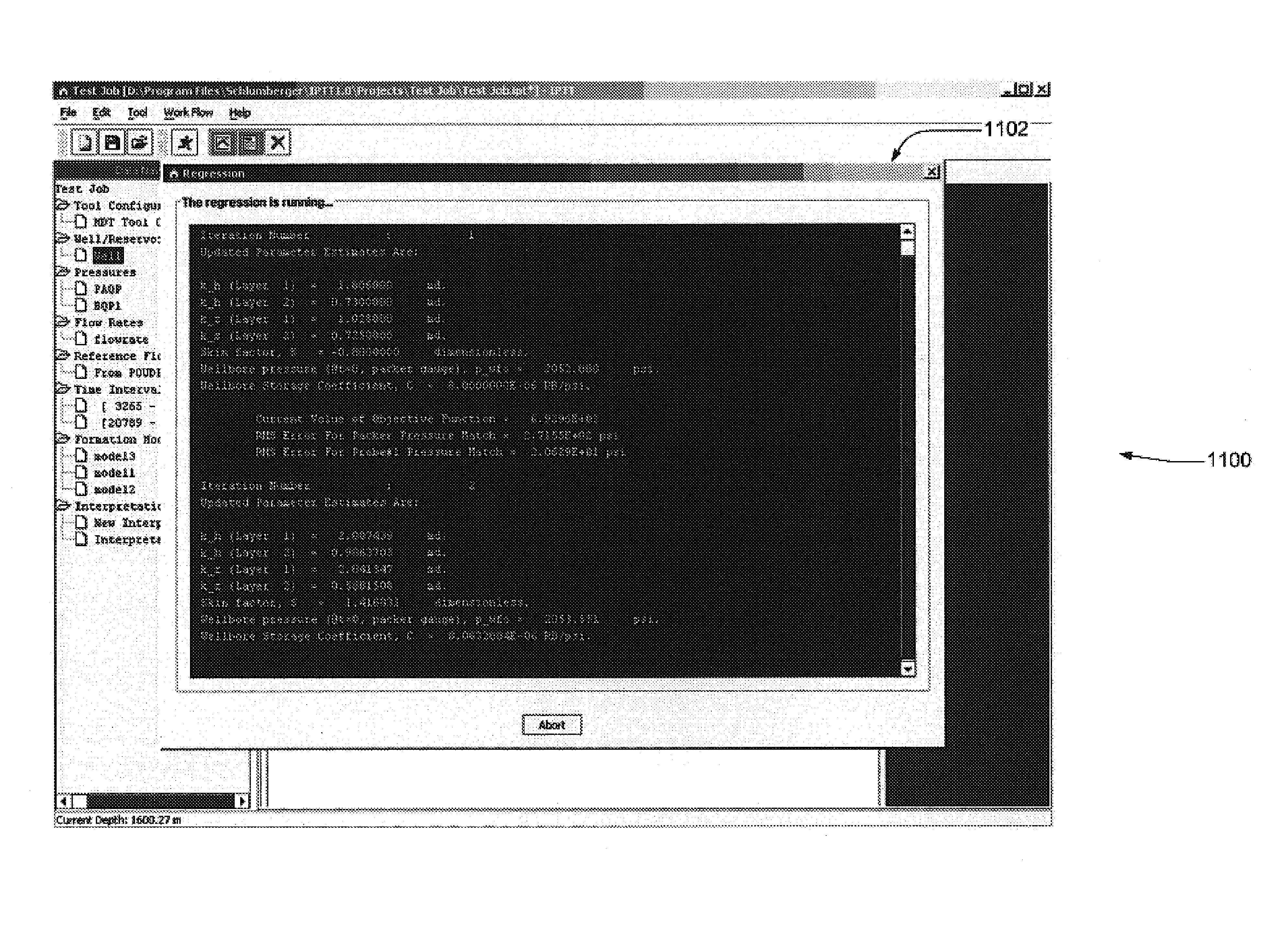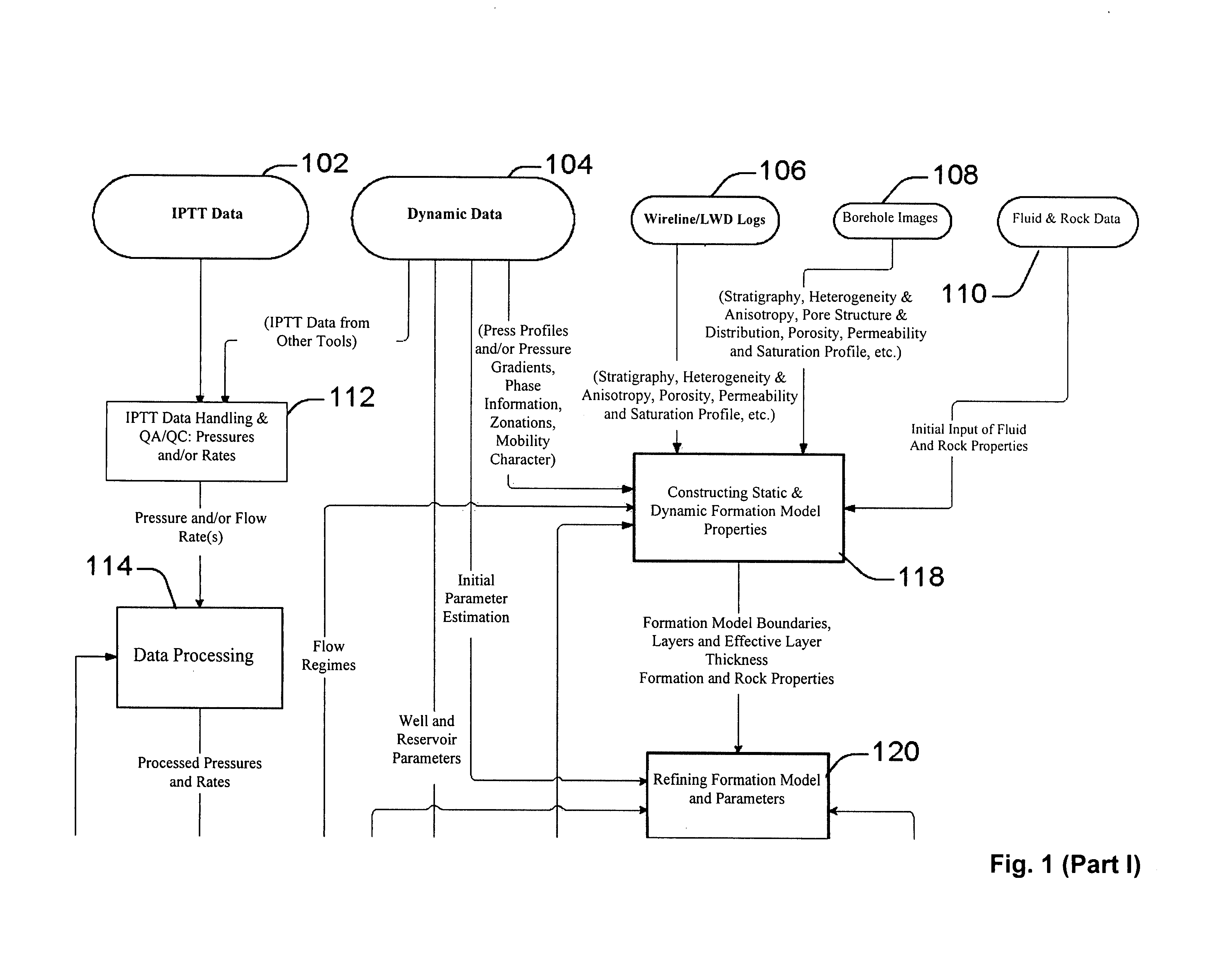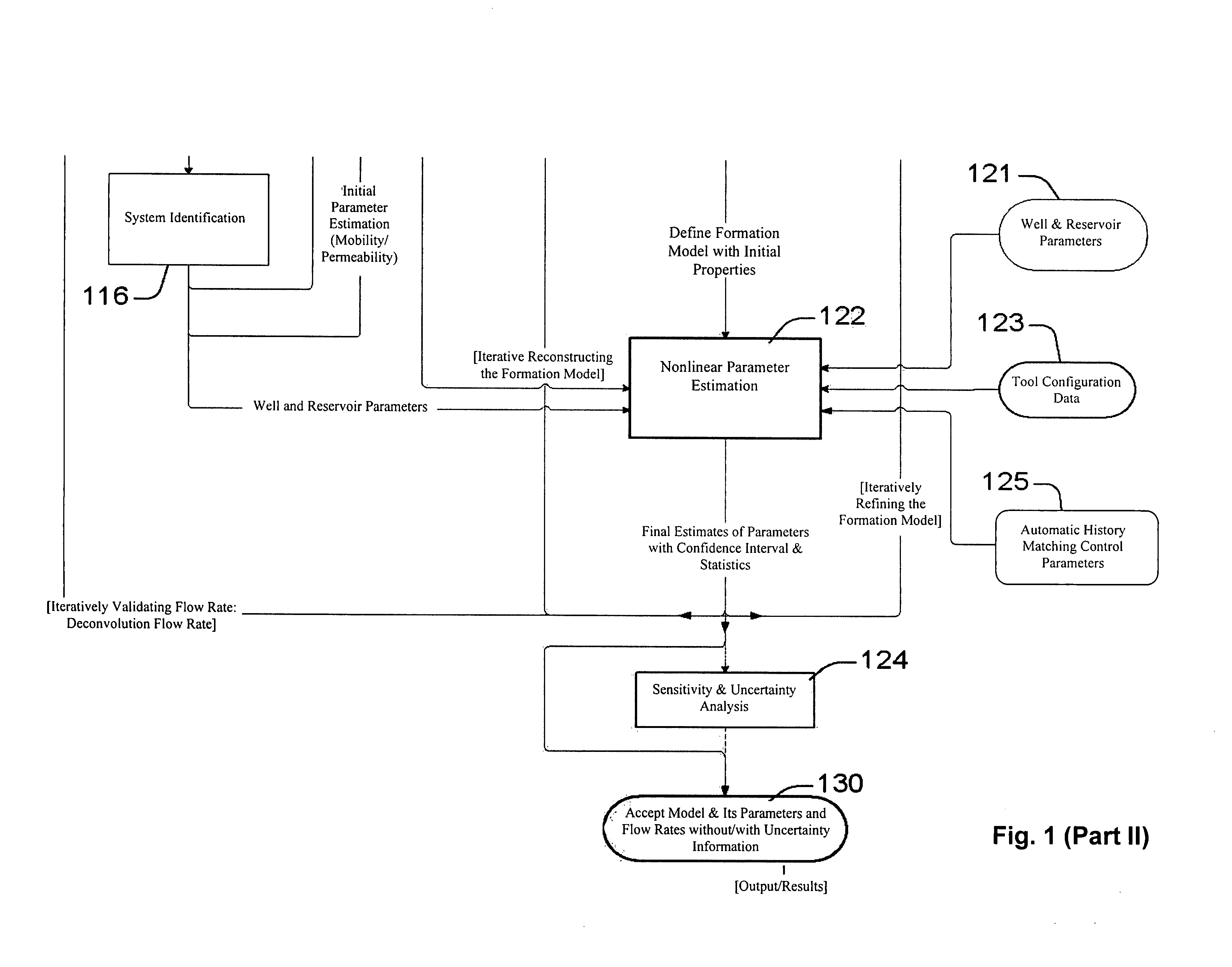System and methods of characterizing a hydrocarbon reservoir
a hydrocarbon reservoir and system technology, applied in seismology for waterlogging, borehole/well accessories, instruments, etc., can solve the problems of not having an integrated systematic procedure and/or program which may be used to obtain the spatial distribution of formation permeability, wasting considerable amount of time on non-productive tasks, and requiring considerable additional time for building geological and reservoir models
- Summary
- Abstract
- Description
- Claims
- Application Information
AI Technical Summary
Benefits of technology
Problems solved by technology
Method used
Image
Examples
Embodiment Construction
[0016]In order to obtain estimates of spatial formation permeability and pressure (parameters) distributions in a cost-effective an time-efficient manner, a graphical user interface (GUI) is used for facilitating Interval Pressure Transient Testing (IPTT) techniques used to provide an integrated user-friendly interpretation platform for analyzing formation testing pressure and flow rate measurements. In addition to spatial parameter estimates, such as pressure, effective vertical and horizontal permeabilities and damage skin factor for individual layers of a geologic formation, associated uncertainties in estimates are also obtained from the IPTT interpretation platform of the invention. According to specific embodiments, the technique of the present invention is able to provide seamless workflow from openhole logs, model building, to inversion of spatial parameters, such as permeability. According to at least one embodiment, the IPTT software and GUI of the present invention enable...
PUM
 Login to View More
Login to View More Abstract
Description
Claims
Application Information
 Login to View More
Login to View More - R&D
- Intellectual Property
- Life Sciences
- Materials
- Tech Scout
- Unparalleled Data Quality
- Higher Quality Content
- 60% Fewer Hallucinations
Browse by: Latest US Patents, China's latest patents, Technical Efficacy Thesaurus, Application Domain, Technology Topic, Popular Technical Reports.
© 2025 PatSnap. All rights reserved.Legal|Privacy policy|Modern Slavery Act Transparency Statement|Sitemap|About US| Contact US: help@patsnap.com



